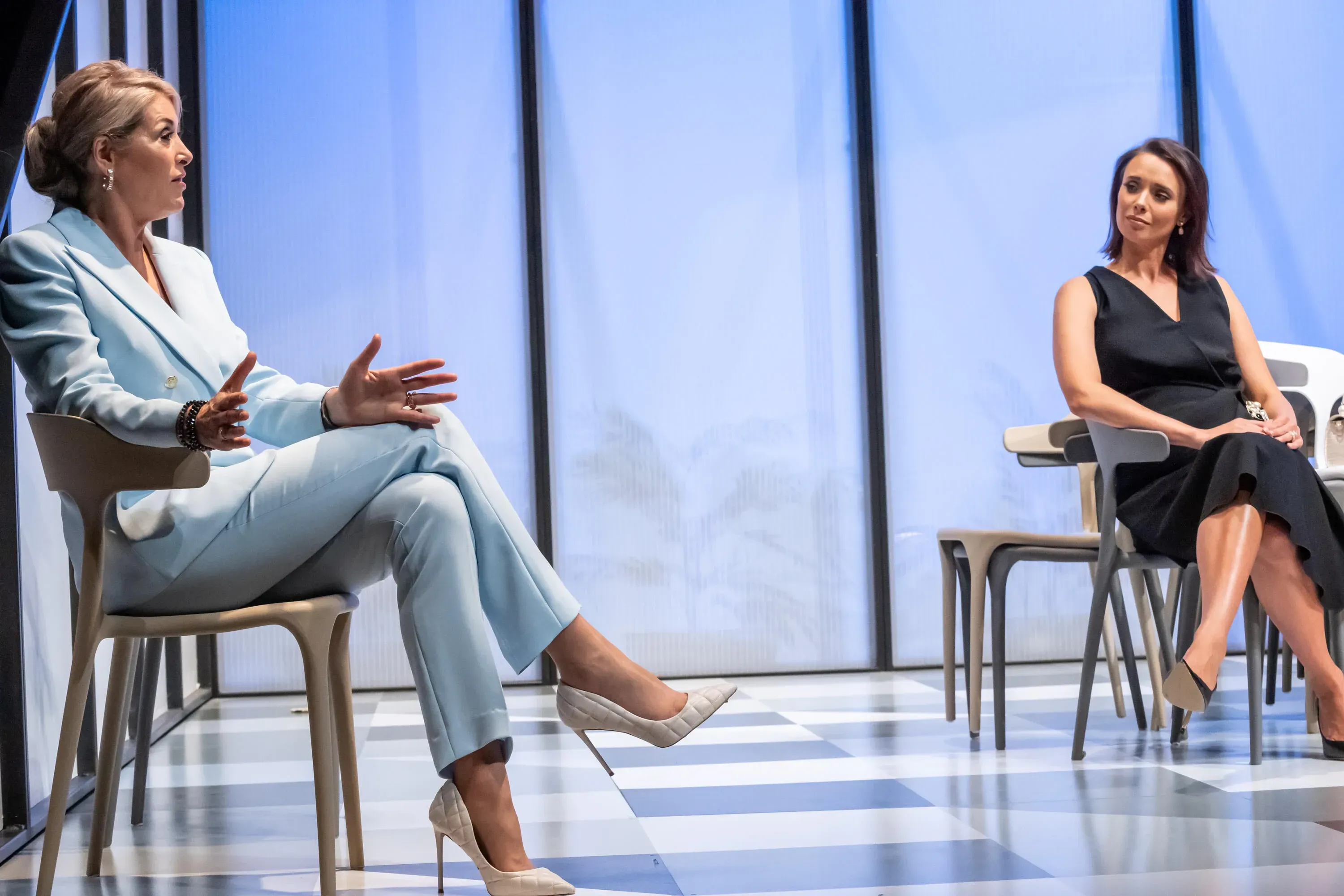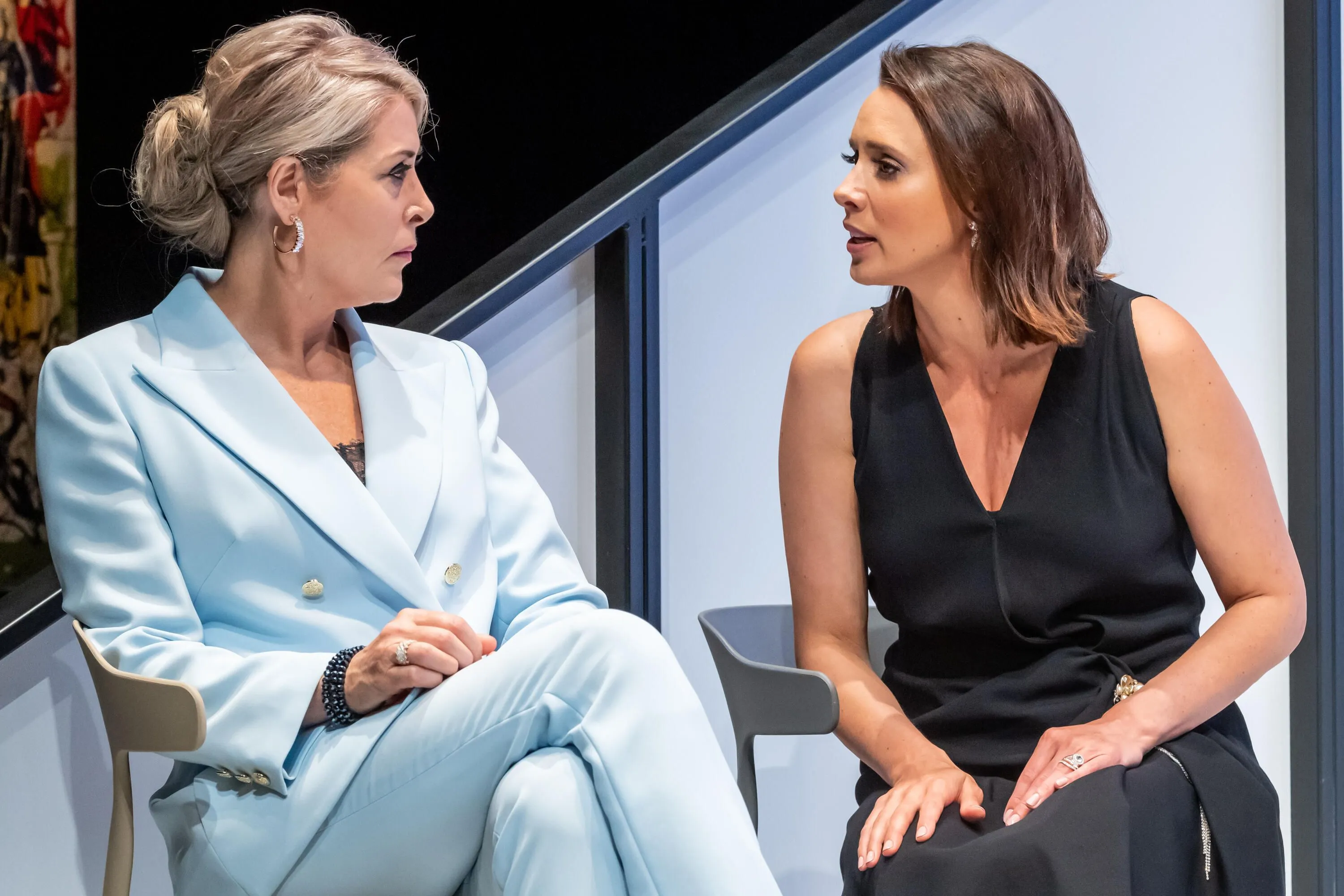Three Women on Two Ladies
Written by
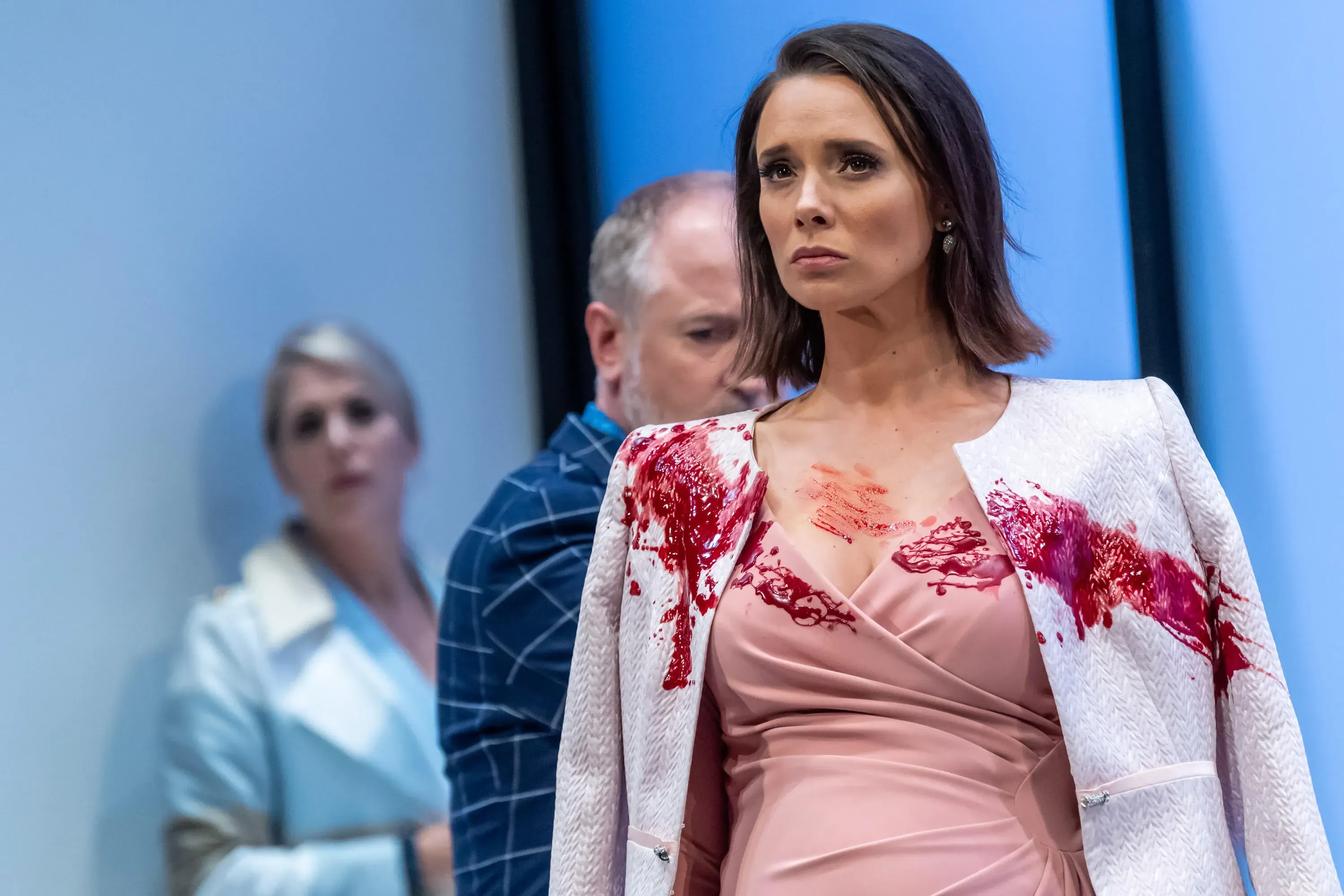
Nancy Harris’ Two Ladies has been entertaining crowds (a short COVID alert level enforced break aside) for most of February at ASB Waterfront Theatre, brought to life on our shores by Auckland Theatre Company and the ferocious talents of Jennifer Ward-Lealand, Anna Julienne and Rena Owen.
With the central characters having more than a passing resemblance to Melania Tump and Brigette Macron, the production is known for its focus on the underappreciated, misunderstood role women play in positions of power, and exploration of what life for women in politics is like.
ATC invited three of The Big Idea’s fiercest feminist theatre lovers, Vicki Holder, Verity Johnson and Dina Jezdic along to enjoy.
The three of them caught up after the show to discuss how Harris’ take translates to Aotearoa and find out whether the themes discussed struck a chord in TBI’s first Round Table.
(Warning: contains spoiler alerts about the plot.)
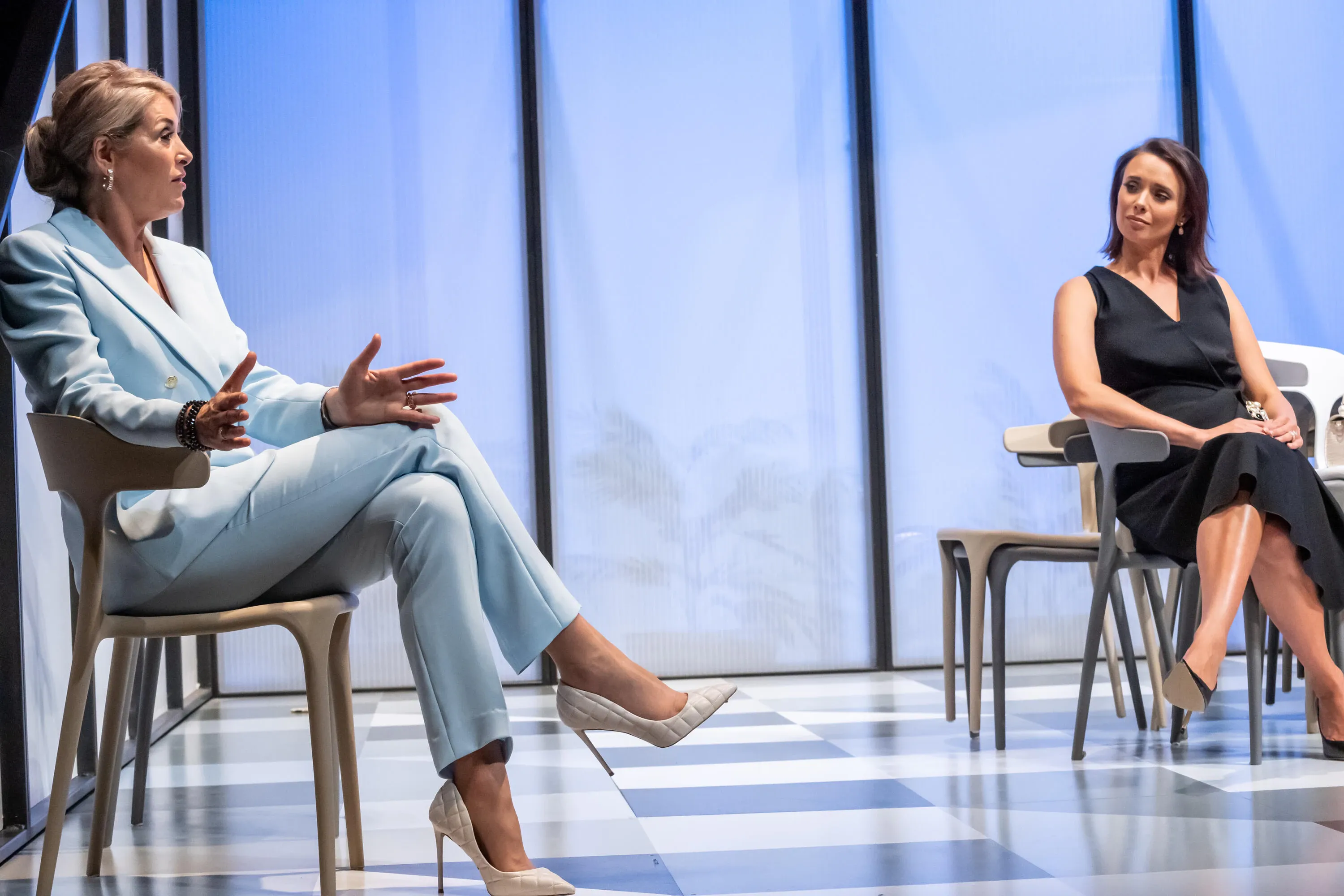
Jennifer Ward-Lealand (left) and Anna Julienne (right) in ATC's Two Ladies. Photo: Michael Smith.
Dina – I think the themes of women and ageing are constantly present in Two Ladies.
The idea is you have this expiry date. Unless you can preserve yourself and your beauty in this goldfish bowl situation, you won’t be able to preserve your power and you’re doomed.
Verity – What I thought was really interesting, and honest, was how Helene [the Birgitte Macron character] simultaneously rejected this need to be beautiful - but also bought into it and tried to use the power that being glamorous gave her. I think we do that as humans, we reject this kind of superficial ‘beauty-is-power’ at the same time as also wanting it.
Dina – She understood the trap she was in.
Vicki – She thought it could work for her. It was working for her. She had power. But all of a sudden, Sophia [the Melania Trump character] pointed out that her husband had a child on the way to another woman. Helene knew of the betrayal with the woman who existed all along.
Suddenly she was confronted by it and was forced to have to deal with the double-edged sword of the life she’d chosen and the compromises that came with it.
Verity - And that left me feeling utterly depressed, haha, because it suggested that as we age we’re all just progressing towards invisibility and there’s no way out.
Vicki – Well there was. It might be drastic but that was their way out.
Dina - Let’s talk about the ending, then. (warning: spoiler to follow)
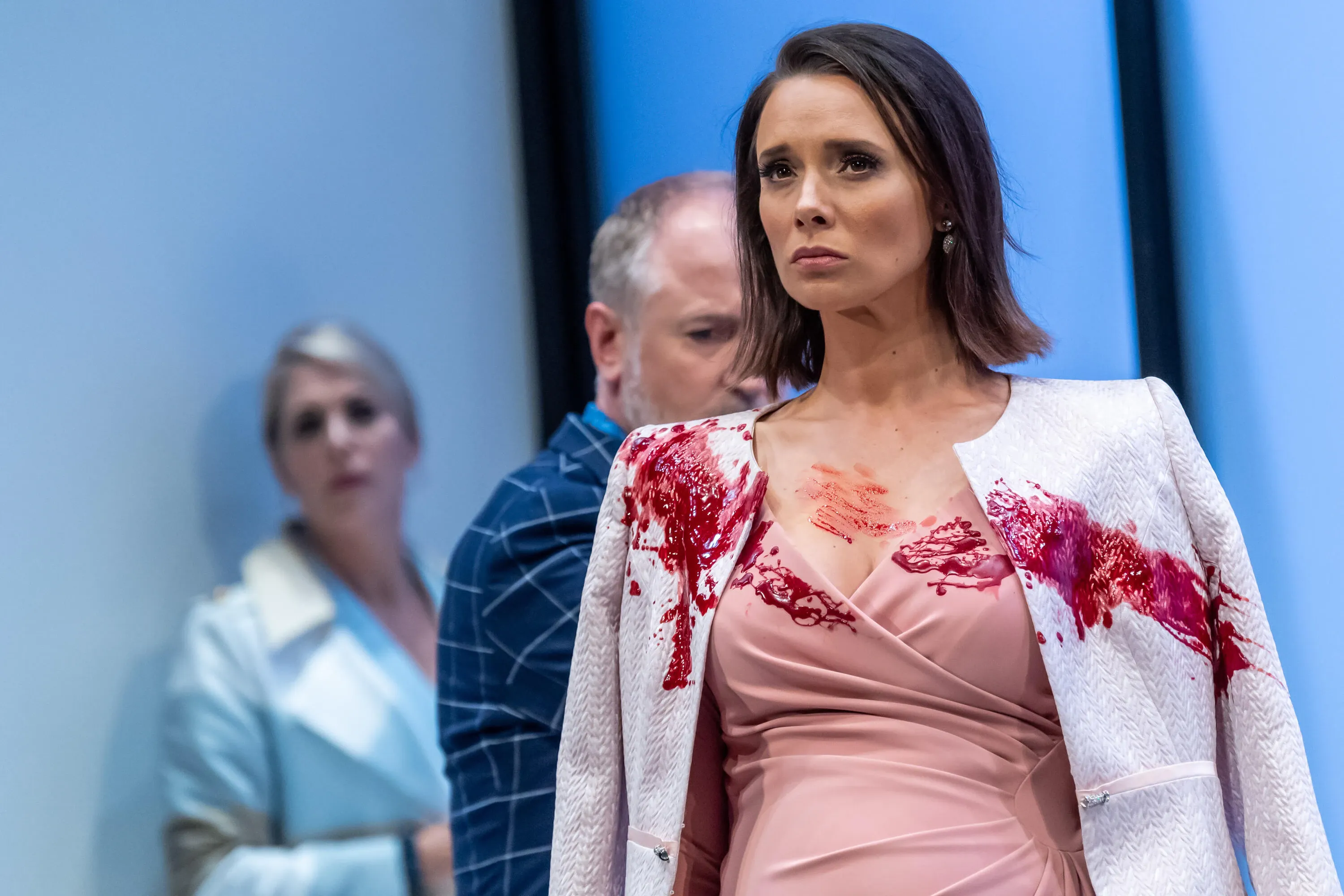
Anna Julienne as Sophia in Two Ladies. Photo: Michael Smith.
Vicki – How is obliterating themselves via suicide a protest against their husbands a statement of power?
Verity – It’s an act of destruction towards their husbands, right? You’re trying to down your husband’s political career, to destroy the chances of them ever having a career again.
Dina – Because leaving them is not going to do that.
Verity – Yeah, leaving wouldn’t stop their husbands getting reelected. But also, if you walked away instead of committing suicide, I feel as though you ultimately win. Because you made a choice to build a new life and not make choices that are still ultimately a reaction against your husband - like killing yourself to ruin his career.
Dina – If you commit suicide, your husband wouldn’t get re-elected. That is an act of revenge.
Verity – But you’re still dying.
Vicki – And what happens after that? Another man is re-elected. The system doesn’t stop. Although I also think that for everyday people like us, we don’t feel so trapped. Those women are political tokens and it’s not the real world.
Dina – Would a man take poison to dethrone his wife? No, he’ll be like, ‘I’ll kill you bitch’. Women take the side of suicide to take down the husband. That makes no sense to me. It’s a narrative of female life. They win. You lose. Men would never let you flip that.
It’s also poignant. Here we are at the Auckland Theatre Company in the middle of the month of Pride and Fat Feb, which offer a completely different narrative of femininity and feminism. They’re about fluidity and opening gender roles. Do we need to fit into the roles shown in the play? Isn’t there a more positive pathway? Instead of poisoning ourselves or killing the other gender, isn’t it better to make genders more fluid?
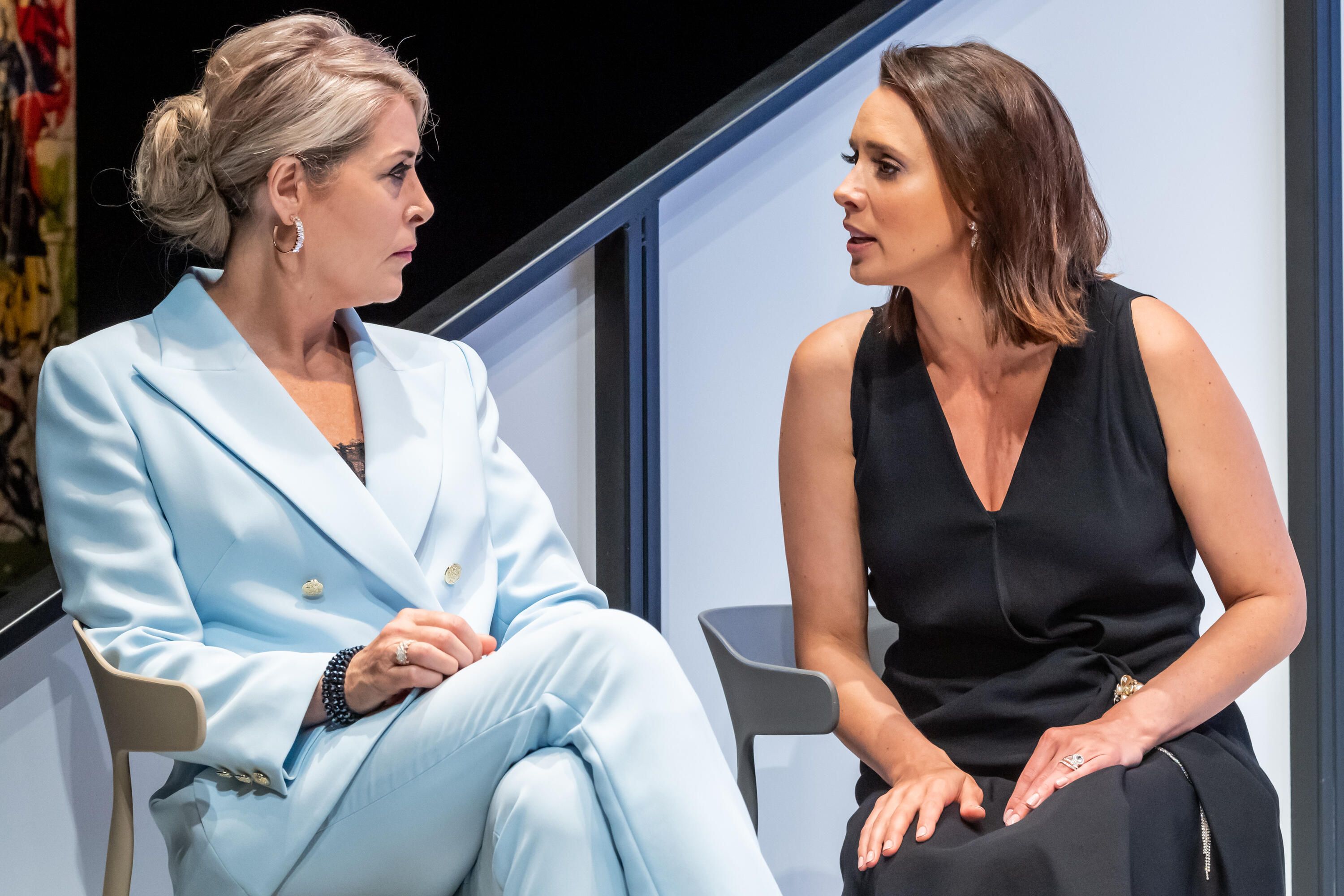
Photo: Michael Smith.
Vicki – It’s kind of back in the 90s, the kind of narrative they’re showing.
Verity – I know a lot of older women who’d say though that we should just accept that this is the way the world works. Now, I want to reject that but I wonder if that’s me being naive. Maybe this is how it is.
Vicki – No, I think the world has changed. And I think it’s really great that you are rejecting it.
Verity – Maybe it’s generational - when I watched it I thought it would really resonate with my mum. The general expectations around feeling trapped and hollow power. And I as a millennial don’t identify with it personally, but that point of view is probably still more prominent than we give it credit for.
Dina - I was in the audience once listening to Michelle Obama and she said, ‘I put my fake eyelashes on every time and I make sure my hair is immaculate. I make sure all of this stuff looks put together because of what I want to say and how I want to be listened to.’ She has to look perfect to be heard.
Vicki – Offer no distractions.
Verity – For anything she says to be taken seriously, she has to look perfect. And again, that’s depressing because you can’t be perfect forever. Helene and Sophia are trapped by the system and miserable, and the men running the system also sound pretty miserable (well, that and very cowardly.)
Dina – They were all trapped. No-one in there made me think they had a chance.
Vicki – I think she (Nancy Harris) should have tried to give a more positive spin that was more contemporary at the end. It didn’t need to end that way.
Dina – Imagine if they just ran away.
Verity – The director’s cut!
Dina – I like the idea of women being bitchy, running off and laughing at the men in the distance!
Unfortunately due to COVID Alert Levels, the North Island tour of Two Ladies by ATC has been cancelled.
